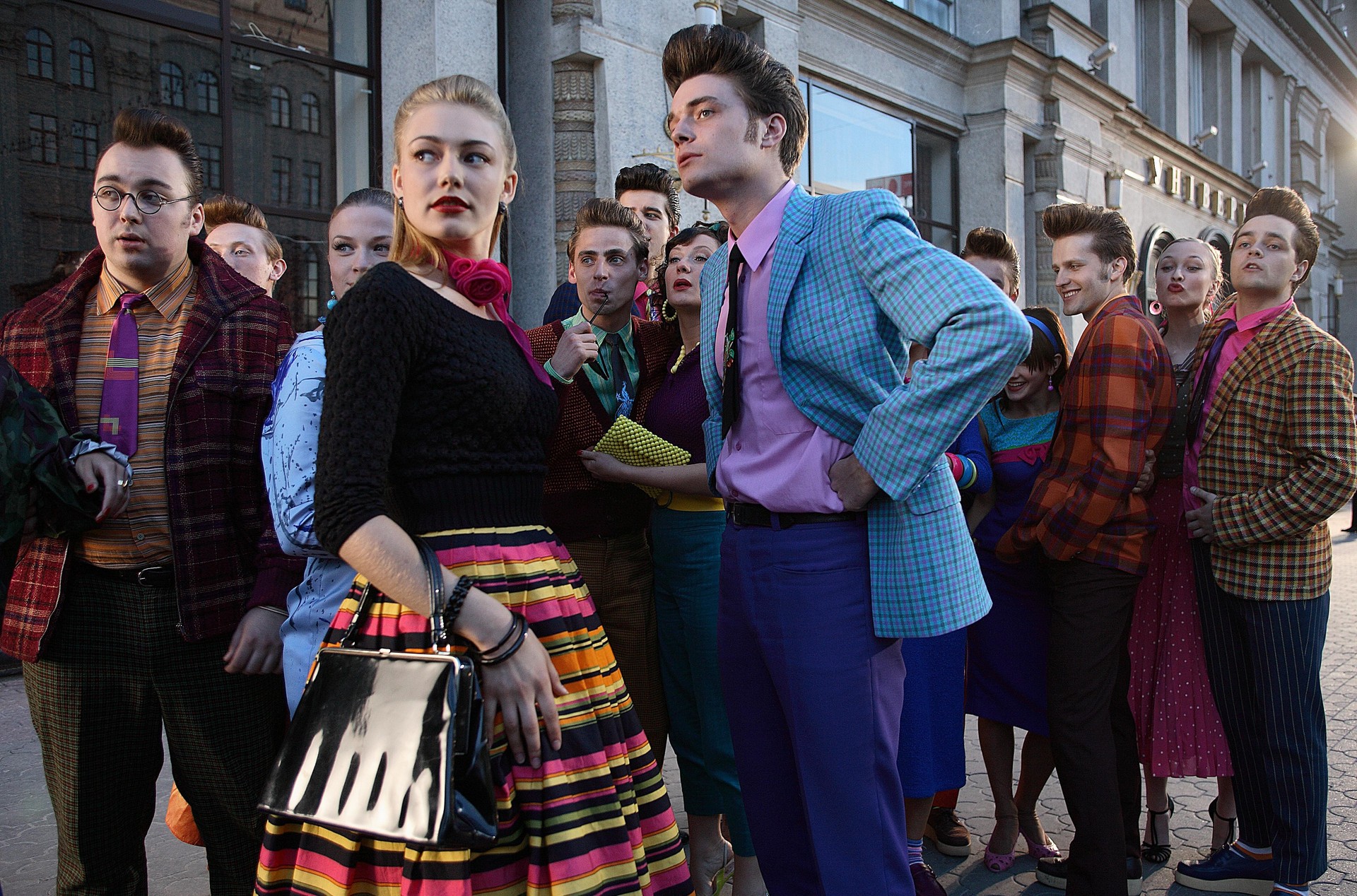Perhaps one day, you’ll wake up and breathe
Realizing the air you inhale is spaceless
And the disinterested time of numbers is timeless
Read moreYour Custom Text Here
Perhaps one day, you’ll wake up and breathe
Realizing the air you inhale is spaceless
And the disinterested time of numbers is timeless
Read more
If you haven’t heard the name of this Japanese band by now, you have three albums to catch up on, the last one (Metal Galaxy) released less than a year ago. Formed in 2010 by three young women, Babymetal connects the worlds of Japanese pop (J-pop) and heavy metal, of ‘cuteness’ and aggression, of idol culture and its subversion; all within a genre they call kawaii metal [1]. Besides presenting a strikingly new, hybrid sound, the trio – currently duo- and the mixed reception of their work provide a potent ground of theorizing the negotiations of authenticity and diversity among metal fans today. With a few exceptions [1], however, it appears that the Western academia has not yet caught onto the case, despite the group’s global appeal confirmed by their World Tours and 2019 top position on Billboard’s Top Rock charts (as the first Asian group in history) [2]. While metal fanbases question whether Babymetal can be qualified as metal at all and whether it is “authentic”, we can in turn ask: what do such questions reveal about the “rockist ideology” [3] in its diversifying transition of the modern age?
Read more
I have to admit… Ever since I was asked if I would like to join the Honours Review team of writers, I thought “Oh yeah! The opportunity I have been waiting for to express my creativity and ideas”. Guess what… It didn’t happen. Every time I have to write about a new topic, my mind goes blank and I feel like all my creativity is gone or it never existed and the reality I used to know was fake.
I wonder, is it just me when I am put on the spot, or does this happen to everyone?
As you may already suspect, a writer’s block is one of the most common conditions one can suffer from.

Whether online, in record stores, in music magazines, awards, or even daily fan conversation, the terms such as “underground” and “alternative” are increasingly used for the classification of music releases. Either used in combination with other genres to describe a certain music style (“alternative rock”; “underground dance music”) or even functioning on their own, the underground and alternative are understood as self-evident by many. The common definition is simple: alternative/ underground is simply not a part of the mainstream. In academia, however, as early as 1996 popular music genres (as a whole) were called under scrutiny for their unstable boundaries, constructed, marketing-oriented and agreement-based nature. [1] As umbrella terms often encompassing a variety of genres based on broad criteria, the terms “underground” and “alternative” can be questioned even more so.
Read more
“The scar had not pained Harry for nineteen years. All was well.” [1] Chances are, you remember quite well when and where you read this sentence for the first time. It might have marked the end of the Harry Potter-era, but started a seemingly endless supply of fix-it fic: fanfiction that addresses a – according to the author – unfathomable error in the original work and tries to set it straight. Especially the final Harry Potter book has lead to an innumerable amount of such works. Yet, Harry Potter is far from the only franchise inspiring fanfiction writers all over the world to fix their predecessor’s errors. How has this genre developed over the years?
Read more
Directed and produced by Isao Takahata, Grave of the Fireflies (1988) is an animated movie telling a story of war, grief, and tragedy. During an attack on their village two children, Seita and Setsuko lose their mother. Their father is a soldier in the Japanese army, currently fighting in the Second World War, so the children decide to temporarily stay with their aunt. However, as time passes, the aunt begins to treat Seita and Setsuko as if they are unwanted intruders in her household. As a result of their relative's attitude and lack of compassion, the children proceed to run away and move in an abandoned bunker which they try to transform into a home. As the story unfolds, it portrays Seita and Setsuko's experiences while dealing with post-war reality – hunger, illnesses, and loneliness.
Read more
Climate change: a topic dominating everyday discussions worldwide. In fact, THE topic of the present day. But first things first: What is Climate Change? Is it real or “fake news”? How will it affect our daily lives? Too many questions, not enough time. As a natural science student, I feel that the perception of this topic is a bit different when compared with ‘normal people’. Here, I propose to lead you through the story of Climate change, through my perspective. We’ll look deep into what it is Climate Change, the real risks on our ecosystems, what has been done to fight it and, lastly, which alternatives to secure the future of our planet could be taken.
Read more
In today’s social media dominated world, platforms like Twitter are not only there to allow users to express themselves in 280 characters. On a scale achievable only by a multi-billion company, people can now turn to tweeting as a way of connecting over-shared preferences for their favourite media, with television emerging as the winner. Here is where we see the emergence of a golden rule: fans of the same TV programs prefer opinions which support their own (4). This phenomenon, known as opinion homophily or echo chambers, deserves attention as the number of fandoms increases in this triumphant TV era of content streaming platforms like Netflix. But why exactly do TV fandoms on Twitter have a tendency to form homophilic echo chambers?
Read more
In the first part I talked about the current challenge we are confronted with regarding the transformation of our economic system to fight climate change. I argued that we have to move from a linear take-make-waste economic model to a circular economy in which as many resources as possible stay within in the cycle, where they are re-used and re-“cycled”. I argued that this system changes will cause a shift in the roles of its actors. Rather than being focused on one single role with a limited set of objectives, private citizens, companies and the government have to widen their perspective and become much more strongly involved in every aspect of energy production and consumption. Glocalization leads to the civil society becoming prosumers – consumers and producers at the same time which requires a much stronger sense of personal autonomy amongst private citizens. In what follows, I want to continue by giving some ideas of why strong collaboration between actors is particularly necessary for moving on to a sustainable energy production system and which implications this might have for individuals, politicians and firms.
Read more
Still from Valery Todorovsky’s 2008 musical Stilyagi. Image source: http://popkult.org/hipsters/.
Feeling a bit jazzy today? Not in the Communist Party of the Soviet Union.
The USSR and jazz had a love-hate relationship ever since the country’s formation in the early 1920s: the officials hated it, the youth loved it.
Read more